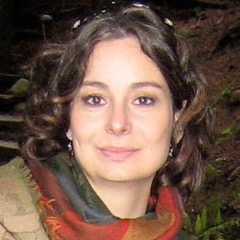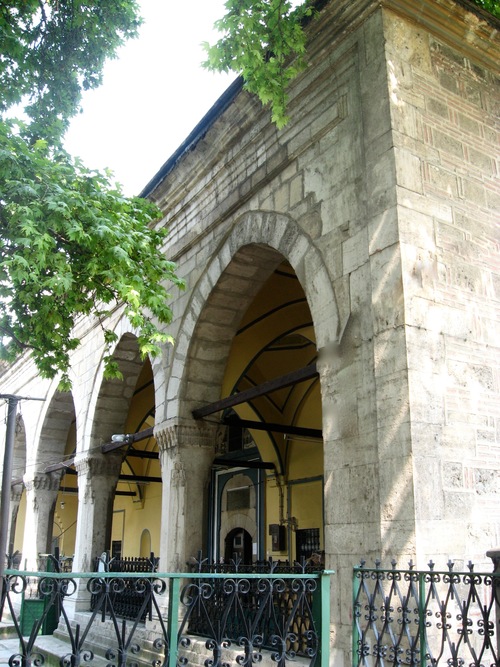Anthropology Student Digs Macedonia Field School by Bethany Scott
ARTICLE IN THE NAVIGATOR - VANCOUVER ISLAND STUDENT PRESS - IN 2008
“I had no idea what I was signing up for when I decided to go to Macedonia on the anthropology field school last summer. I’ve traveled a fair bit, but a year ago Macedonia didn’t even register on my radar, except as the supposed home of the fictional ass-kicker, Xena the Warrior Princess.
In case you’re scratching your head wondering, the Republic of Macedonia is a small Eastern European country of about 2 million citizens, bordered by Greece, Albania, Bulgaria, Serbia and Kosovo. Part of the former Yugoslavia, Macedonians peacefully declared their independence in 1991. Citizens speak Macedonian, using the Cyrillic alphabet, which in fact originated in Macedonia. Its current claim to fame is its yet-to-be-resolved name dispute with Greece. Greece strongly objects to the republic’s use of the name Macedonia, because it’s also the name of the northern province of Greece. It’s a complex situation with a more complex history that I wouldn’t even attempt to explain (or pretend that I could without writing a PhD dissertation).
The first thing anyone would notice, is that flying into Skopje, the capital, you land at the “Alexander the Great” airport. Thus starts the lesson in nation-making, identity-building, history claiming and reclaiming, and pride. Skopje was blanketed with posters reading “Ja Cakam Makedonija” (I love Macedonia), courtesy of the left of center political party (not currently in power), which did not want to seem less patriotic than the governing nationalist party.
We were a small group of eight students who managed to visit a surprising amount of the country as we worked through our three classes — Research Methods, Development Issues in Anthropology and the Anthropology of Post-Socialism — in the July heat. You’ll notice I’ve mentioned nothing about digging, rocks, ancient artifacts or Indiana Jones. There is a lot more to anthropology than archeology and this field school was focused on social and cultural anthropology.
During our four weeks, we had guest lecturers and talked to people from a range of disciplines: American anthropologists who work for the US State Department, Macedonian anthropologists trying to understand the so-called ‘ethnic tensions’ between Muslim Albanians and orthodox Macedonians, environmental activists, local celebrities, advocates for youth, development workers, historians, lawyers, musicians, experts in Macedonian traditional costumes, policy experts who work with NGOs, a professor who wrote her PhD dissertation on the body in Macedonian folk literature. We talked to the press secretary for the president of the Muslim Association of Macedonia and were able to ask questions and get his opinion on the ‘war on terror’, the role of women in Islam, imagery in Islam and the cross that stands on Mt. Vodno overlooking Skopje.
It’s hard to put into a few words the totality of the field school experience. Everywhere we visited we were treated to amazing hospitality. People in Macedonia are so welcoming, truly wanting visitors to experience and enjoy their country and customs. I especially enjoyed the gastronomic delights: trying rakija (homemade brandy - much better than store-bought), slatko (figs in homemade sweet syrup), coffee (Turkish or Nescafe), burek (cheese or meat pastry) for breakfast, gravcha tavcha (beans) for lunch, aivar (ground roasted peppers) and kashkaval cheese, with the occasional fizzy milk for good measure. I’m hungry just typing this. Fortuitously, I’ve discovered since getting home that I can buy aivar at my local health food store.
Besides the food, my favorite memories of Macedonia are about the people. As a newly formed post-socialist country, the citizens of Macedonia are still working through the transition to a market economy in a democratic nation; it’s been a long and challenging process.
Before I left, some of my friends and family expressed concern about my traveling to Eastern Europe, especially with the recent upheaval in Kosovo. I can honestly say that there was never a moment that I did not feel safe while in Macedonia. People were approachable when I needed help, especially when they found out I was from Canada (ah, Canada! Toronto?). It was easy to feel a connection with the people I saw every day. Not surprisingly, in my memories, the faces that come quickest to the forefront are the people who fed me each day – the young man in the yellow kiosk near the bus stop who sold me my ‘chocolate tube’, the young woman in the ‘fast food’ restaurant from who I bought my French sandwich (a bun, with ham, cheese, cucumbers, fries, mayo and ketchup…yum…), the middle-aged guy who ran the café on the first floor of our apartment building who spoke great English and who knew more about Canadian sports than most Canadians, and the servers who brought us pizzas at DalMetFu restaurant, our most common meeting place in the city center.
The field school itself was nothing short of mind-blowing, life-altering and perhaps other hyphenated words that escape me at the moment. My Macedonian experience ranks up there with one of the coolest things I’ve ever done. Even now, I’m trying to figure out how and when I can return, while slyly tweaking every essay I write this term to include something about post-socialism, the creation of national and individual identity, the breaking up of a country and building it back up again. When Dr. Thiessen said to me last October “you should come, I think you’d like it,” she was right. Ja Cakam Makedonija!
Stay tuned for the next part of this adventure!!
”
click to see a short video from the fieldschool






















































































































































